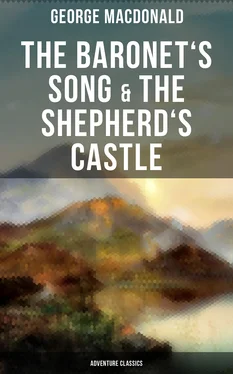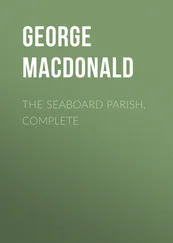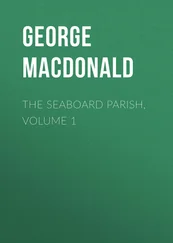To him the city was all a show. He knew many of the people—some of them who thought no small things of themselves—better than they would have chosen he or any one else should know them. He knew all the peripatetic vendors, most of the bakers, most of the small grocers and tradespeople. Animal as he was, he was laying in a great stock for the time when he would be something more, for the time of reflection, whenever that might come. Chiefly, his experience was a wonderful provision for the future perception of character; for now he knew to a nicety how any one of his large acquaintance would behave to him in circumstances within the scope of that experience. If any such little vagabond rises in the scale of creation, he carries with him from the street an amount of material serving to the knowledge of human nature, human need, human aims, human relations in the business of life, such as hardly another can possess. Even the poet, greatly wise in virtue of his sympathy, will scarcely understand a given human condition so well as the man whose vital tentacles have been in contact with it for years.
When Gibbie was not looking in at a shop-window, or turning on one heel to take in all at a sweep, he was oftenest seen trotting. Seldom he walked. A gentle trot was one of his natural modes of being. And though this day he had been on the trot all the sunshine through, nevertheless, when the sun was going down there was wee Gibbie upon the trot in the chilling and darkening streets. He had not had much to eat. He had been very near having a penny loaf. Half a cookie, which a stormy child had thrown away to ease his temper, had done further and perhaps better service in easing Gibbie's hunger. The green-grocer woman at the entrance of the court where his father lived, a good way down the same street in which he had found the lost earring, had given him a small yellow turnip—to Gibbie nearly as welcome as an apple. A fishwife from Finstone with a creel on her back, had given him all his hands could hold of the sea-weed called dulse, presumably not from its sweetness, although it is good eating. She had added to the gift a small crab, but that he had carried to the seashore and set free, because it was alive. These, the half-cookie, the turnip, and the dulse, with the smell of the baker's bread, was all he had had. It had been rather one of his meagre days. But it is wonderful upon how little those rare natures capable of making the most of things will live and thrive. There is a great deal more to be got out of things than is generally got out of them, whether the thing be a chapter of the Bible or a yellow turnip, and the marvel is that those who use the most material should so often be those that show the least result in strength or character. A superstitious priest-ridden Catholic may, in the kingdom of heaven, be high beyond sight of one who counts himself the broadest of English churchmen. Truly Gibbie got no fat out of his food, but he got what was far better. What he carried—I can hardly say under or in, but along with those rags of his, was all muscle—small, but hard, and healthy, and knotting up like whipcord. There are all degrees of health in poverty as well as in riches, and Gibbie's health was splendid. His senses also were marvellously acute. I have already hinted at his gift for finding things. His eyes were sharp, quick, and roving, and then they went near the ground, he was such a little fellow. His success, however, not all these considerations could well account for, and he was regarded as born with a special luck in finding. I doubt if sufficient weight was given to the fact that, even when he was not so turning his mind it strayed in that direction, whence, if any object cast its reflected rays on his retina, those rays never failed to reach his mind also. On one occasion he picked up the pocket-book a gentleman had just dropped, and, in mingled fun and delight, was trying to put it in its owner's pocket unseen, when he collared him, and, had it not been for the testimony of a young woman who, coming behind, had seen the whole, would have handed him over to the police. After all, he remained in doubt, the thing seemed so incredible. He did give him a penny, however, which Gibbie at once spent upon a loaf.
It was not from any notions of honesty—he knew nothing about it—that he always did what he could to restore the things he found; the habit came from quite another cause. When he had no clue to the owner, he carried the thing found to his father, who generally let it lie a while, and at length, if it was of nature convertible, turned it into drink.
While Gibbie thus lived in the streets like a townsparrow—as like a human bird without storehouse or barn as boy could well be—the human father of him would all day be sitting in a certain dark court, as hard at work as an aching head and a bloodless system would afford. The said court was off the narrowest part of a long, poverty-stricken street, bearing a name of evil omen, for it was called the Widdiehill—the place of the gallows. It was entered by a low archway in the middle of an old house, around which yet clung a musty fame of departed grandeur and ancient note. In the court, against a wing of the same house, rose an outside stair, leading to the first floor; under the stair was a rickety wooden shed; and in the shed sat the father of Gibbie, and cobbled boots and shoes as long as, at this time of the year, the light lasted. Up that stair, and two more inside the house, he went to his lodging, for he slept in the garret. But when or how he got to bed, George Galbraith never knew, for then, invariably, he was drunk. In the morning, however, he always found himself in it—generally with an aching head, and always with a mingled disgust at and desire for drink. During the day, alas! the disgust departed, while the desire remained, and strengthened with the approach of evening. All day he worked with might and main, such might and main as he had—worked as if for his life, and all to procure the means of death. No one ever sought to treat him, and from no one would he accept drink. He was a man of such inborn honesty, that the usurping demon of a vile thirst had not even yet, at the age of forty, been able to cast it out. The last little glory-cloud of his origin was trailing behind him—but yet it trailed. Doubtless it needs but time to make of a drunkard a thief, but not yet, even when longing was at the highest, would he have stolen a forgotten glass of whisky; and still, often in spite of sickness and aches innumerable, George laboured that he might have wherewith to make himself drunk honestly. Strange honesty! Wee Gibbie was his only child, but about him or his well-being he gave himself almost as little trouble as Gibbie caused him! Not that he was hard-hearted; if he had seen the child in want, he would, at the drunkest, have shared his whisky with him; if he had fancied him cold, he would have put his last garment upon him; but to his whisky-dimmed eyes the child scarcely seemed to want anything, and the thought never entered his mind that, while Gibbie always looked smiling and contented, his father did so little to make him so. He had at the same time a very low opinion of himself and his deservings, and justly, for his consciousness had dwindled into little more than a live thirst. He did not do well for himself, neither did men praise him; and he shamefully neglected his child; but in one respect, and that a most important one, he did well by his neighbours: he gave the best of work, and made the lowest of charges. In no other way was he for much good. And yet I would rather be that drunken cobbler than many a "fair professor," as Bunyan calls him. A grasping merchant ranks infinitely lower than such a drunken cobbler. Thank God, the Son of Man is the judge, and to him will we plead the cause of such—yea, and of worse than they—for He will do right. It may be well for drunkards that they are social outcasts, but is there no intercession to be made for them—no excuse to be pleaded? Alas! the poor wretches would storm the kingdom of peace by the inspiration of the enemy. Let us try to understand George Galbraith. His very existence the sense of a sunless, dreary, cold-winded desert, he was evermore confronted, in all his resolves after betterment, by the knowledge that with the first eager mouthful of the strange element, a rosy dawn would begin to flush the sky, a mist of green to cover the arid waste, a wind of song to ripple the air, and at length the misery of the day would vanish utterly, and the night throb with dreams. For George was by nature no common man. At heart he was a poet—weak enough, but capable of endless delight. The time had been when now and then he read a good book and dreamed noble dreams. Even yet the stuff of which such dreams are made, fluttered in particoloured rags about his life; and colour is colour even on a scarecrow.
Читать дальше












